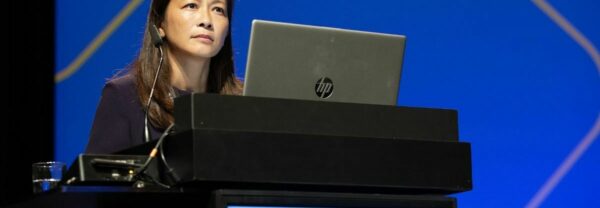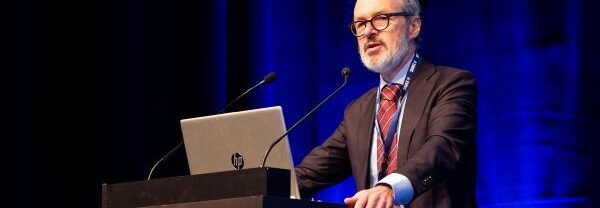ESOU20 to unveil GU fundamentals in Dublin
Expect a wide-ranging and accurate overview of current novelties in onco-urology at 17th Meeting of the EAU Section of Oncological Urology (ESOU20).

Join us in Dublin, Ireland from 17 to 19 January 2020 for onco-urological fundamentals such as combined therapeutic sequences for advanced diseases (e.g. surgery + in locally perioperative systemic drug); the stratification of advanced diseases; the role of molecular and genetics medicine in the personalisation of the treatment management of our patients, to name a few.
ESOU20 is also designed to address challenges such as the promotion of the role of European urologists as principal caregivers regarding genitourinary (GU) cancers. The meeting is the quintessential platform to demonstrate how substantial the network urologists actually is, and to expand it further with new connections with colleagues in the field of oncology.
For urologists, it is important that they remain the main advocates of large uro-oncological trials, especially in areas where low-level evidence exists, as this will promote consensus statement articles and will link the EAU with major uro-oncological societies. For ESOU20, we invited colleagues from American Society of Clinical Oncology (ASCO), European Society for Medical Oncology (ESMO), and European SocieTy for Radiotherapy & Oncology (ESTRO) to participate.
Core topics
The ESOU20 Scientific Programme will cover topics on prostate cancer, renal cell carcinoma, urothelial cancer and rare tumours (e.g. penile carcinoma). We will dive and dig in as much as we can in the substratification of these diseases based on the natural history of cancer (focal, localised, advanced and metastatic); and to emphasise the importance of stepping back a bit from the purely technical aspects of surgery to get a more expansive understanding.
STEPS programme
Young promising clinicians can look forward to the Sessions To Evaluate ProgresS in the management of urological cancers (STEPS) programme, which will offer them the opportunity to interact with the ESOU Board and other experts, and provide new perspectives regarding a career in onco-urology.
An ESOU Board member and a field expert will oversee a table of participants. One participant from each table will be selected and granted the opportunity to give a presentation at a Plenary Session at the next ESOU meeting.
The STEPS programme will support ESOU in its continued scientific and research‐focused projects by strengthening existing ties and encouraging more research projects.
EUO links
The ESOU has a strong collaboration with the European Urology Oncology (EUO) journal as EUO’s Editor-in-Chief, Prof. Alberto Briganti (IT) and Associate Editor, Dr. Gianluca Giannarini (IT) are both ESOU Board members. We will award the best oncological article by a young urologist published in the EUO to illustrate how young urologists are active and flourishing in the field of academic publications.
ESU-ESOU session
In collaboration with the European School or Urology (ESU), the new session “Immunotherapy for the treatment of urological cancers” was developed to offer participants an overview of what is underway; and what essentials from the latest phase II and phase III trials they can incorporate in their daily clinical practice.
Battle of nations
In the ESOU20 Plenary Session “Game of thrones: Battle of Nations”, three national research groups will assess major improvements in the field of onco urology in their countries; talk about how their groups are organised; and discuss their plans. These research groups will include the Comité de cancérologie de l’Association française d’urologie (CCAFU) of France, the Spanish Urology Association for Oncological Treatment (CUETO) of Spain, and the Scandinavian Prostate Cancer Group (SPCG) of Sweden.
What the future holds
In oncology, individual therapy and personalised medicine will transition from theory to practice very rapidly. The treatment of cancer should focus on the treatment of cancer cells rather than on the surgical extirpation of an organ. Thus, in investing in medicine that uses information such as a patient’s genes, his/her environment, and proteins is key for the prevention, diagnosis and treatment of diseases.
In the coming years, some medical specialties such as radiology and pathology, might become obsolete. As urologists, we need to incorporate novelties in our practice not only from evidence-based medicine and pharmaceutical trials, but also from big data and artificial intelligence.
The conflict between standardisation and individualisation has always been a characteristic of medical activity. The high cost of testing and treatments are among the most important factors that influence the integration of individualised medicine approaches in general practice. Some key areas for the future management of GU cancers include genetic polymorphism, the influence of environmental factors, chemoprevention and focal therapies.
Explore the ESOU20 Scientific Programme
Check out the rest of ESOU20’s dynamic programme for more information.


